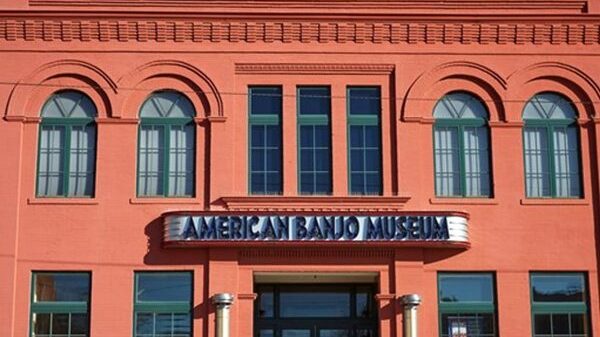American Banjo Museum
★ OKCityCard Discount: 2-for-1 or 1/2-price admission
Offer valid for up to 1 discount per OKCityCard per visit

The American Banjo Museum is a world-class 21,000 square foot facility honoring the rich history, vibrant spirit and unlimited future of the banjo. The museum’s collection contains more than 400 instruments, recordings, film, video, printed music, instructional materials, ephemera and memorabilia associated with the banjo. The museum contains the largest collection in the world of banjos on public display. Galleries include replicas of primitive banjos developed by African slaves, actual Minstrel Age instruments from mid-19th century, Classic Era banjos from the late 1800s and early 1900s, post WWII instruments used in bluegrass, folk and world music. Much of the museum’s core collection is ornately decorated banjos made in American during the Jazz Age of the 1920s and 30s.
Originally located in Guthrie, Oklahoma, the museum was founded as a non-profit organization in 1998 by Midwest City attorney, Brady Hunt and Indiana industrialist, Jack Canine under its previous name, The National Four-String Banjo Hall of Fame Museum. Canine, a banjo player and enthusiast, stated his belief that preserving and promoting the history of the banjo, America’s adopted native musical instrument, is an important mission for future generations.
“The museum was originally founded primarily by and for enthusiasts and players of the four-string banjo, the predominate stringed instrument associated with the jazz age of the 1920s and early 30s,” commented American Banjo Museum, Executive Director, Johnny Baier. In contrast to that beginning, Baier noted that the museum has evolved much like the banjo. As the banjo has evolved for nearly 400 years in the United States taking on many different forms and styles, the American Banjo Museum has expanded and made a commitment to present every chapter of the banjo’s story, from its roots in American slavery to its most recent identities in Bluegrass and international folk music.
